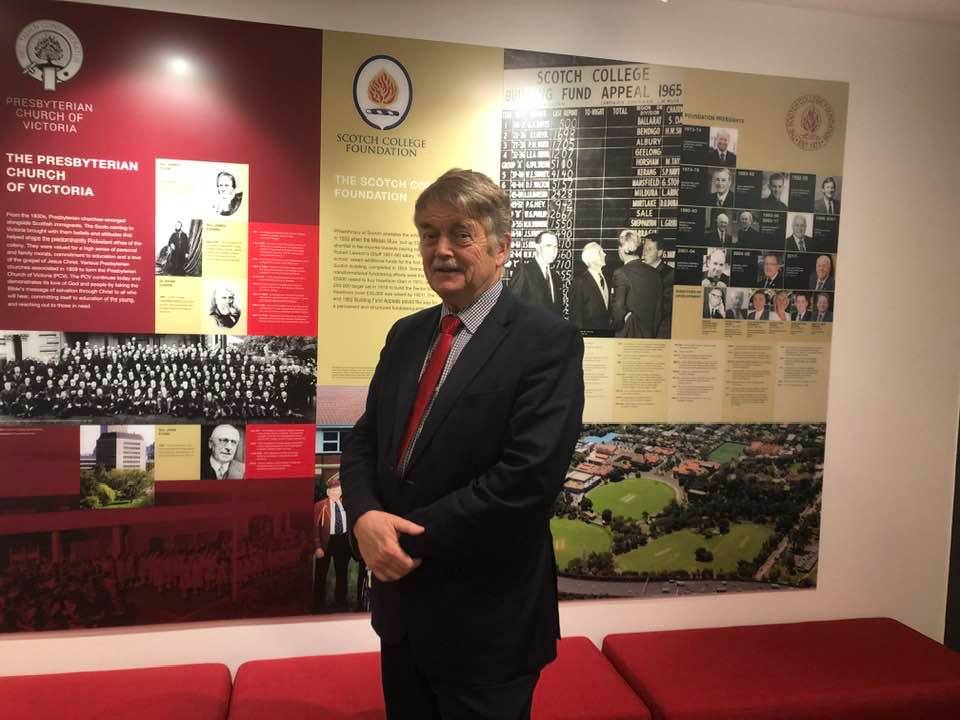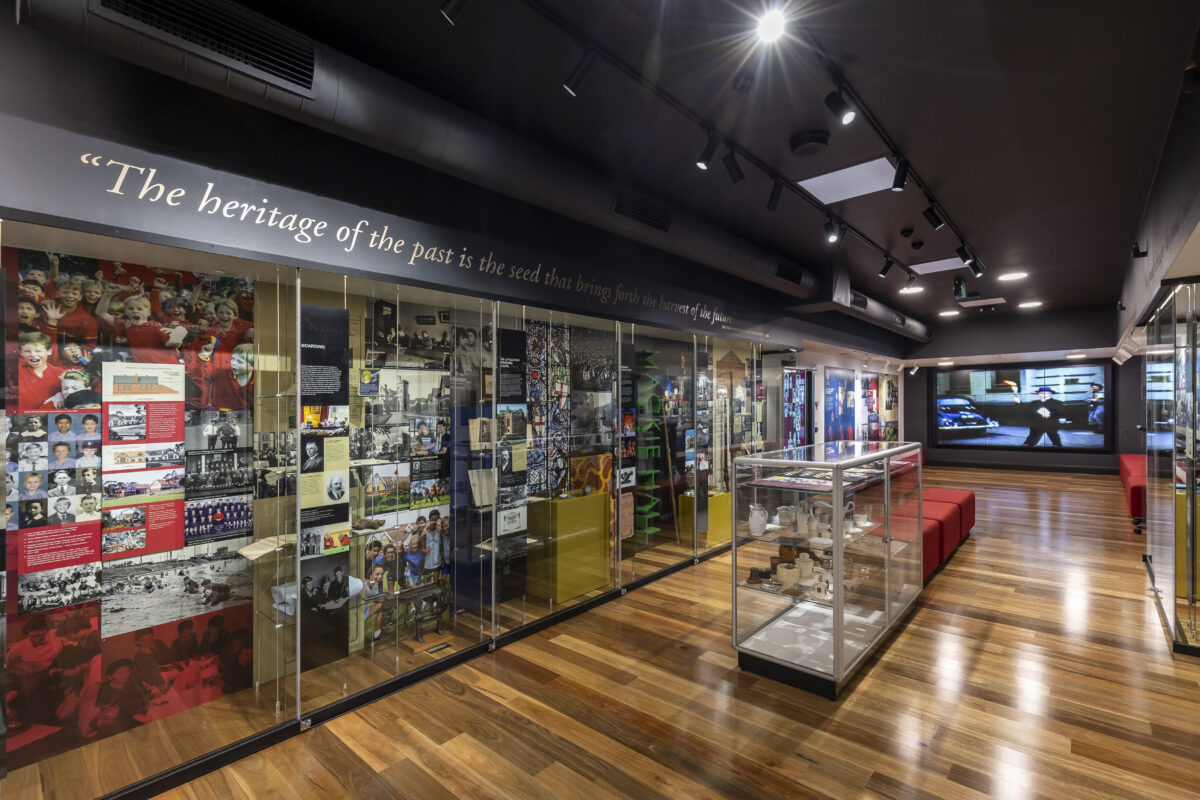John Wilson, in his capacity as the Deputy Chairman of Scotch College Council, recently attended the Grand Opening of Scotch College Museum and Archive.

The Archive display says:
“From the 1830s, Presbyterian churches emerged alongside Scottish immigrants. The Scots coming to Victoria brought with them beliefs and attitudes that helped shape the predominantly Protestant ethos of the colony. They were valued for a high sense of personal and family morals, commitment to education and a love of the gospel of Jesus Christ. Various Presbyterian churches associated in 1859 to form the Presbyterian Church of Victoria (PCV). The PCV continues today and demonstrates its love of God and people by taking the Bible’s message of salvation through Christ to all who will hear, committing itself to education of the young, and reaching out to those in need.”
PCV timeline:
| October 1837 | First Presbyterian service held in the Port Phillip District, by the Rev. James Clow at Geelong |
| April 1838 | Commencement of the settled Presbyterian ministry in Melbourne by the Rev. James Forbes, first minister of Scots Church. He does much for church, education and society. |
| 7 April 1859 | Formation of the Presbyterian Church of Victoria (PCV) with the union of the Church of Scotland, Free Church of Scotland and United Presbyterian Churches. The Rev. James Clow is its inaugural Moderator |
| 1860 | Scotch College Committee formed: among the church’s first committees. Rev. Dr Adam Cairns is inaugural chairman |
| 1860s to 1880s | Missions Committee begins serving the Aboriginal population, and helping overseas, especially in the New Hebrides and Korea |
| 1875 | First Presbyterian girls’ school, Presbyterian Ladies’ College (PLC), opens in East Melbourne |
| 24 July 1901 | All six state Presbyterian Churches form the Presbyterian Church of Australia |
| 1914–18 | Thirty-three PCV ministers serve God and country in World War I, two dying as chaplains, and one in combat |
| 1928 | PCV-trained Rev. John Flynn launches the Presbyterian Inland Mission, the precursor of the Royal Flying Doctor Service |
| 1920s to 1930s | Social Services Committee supports Victorians by establishing boys’ and babies’ homes, girls’ hostels, and St Andrew’s Hospital |
| 1939–45 | Forty PCV ministers serve God and country in World War II. Three chaplains die as prisoners of war, and two ministry candidates are killed in action |
| 1950s to 1970s | Education Committee shows the church’s education priority with nine Victorian Presbyterian schools coming under General Assembly supervision |
| July 1977 | PCV remains Presbyterian despite formation of the Uniting Church in Australia. Approximately a quarter of the PCV (70 congregations) remain with the PCV. Scotch and PLC remain with the PCV |
| 1990s | PCV strengthens overseas service, with partner church relationships formed with Presbyterians in Malawi, Zambia, Sudan and India |
| 7 April 2009 | PCV celebrates its 150th anniversary, joined by international visitors from the USA and Africa |
| 2010s | PresAid started: a PCV-initiated overseas aid and development fund for churches supporting important projects |
The Museum is open to the public from 8:30am to 5:00pm Monday to Friday.

